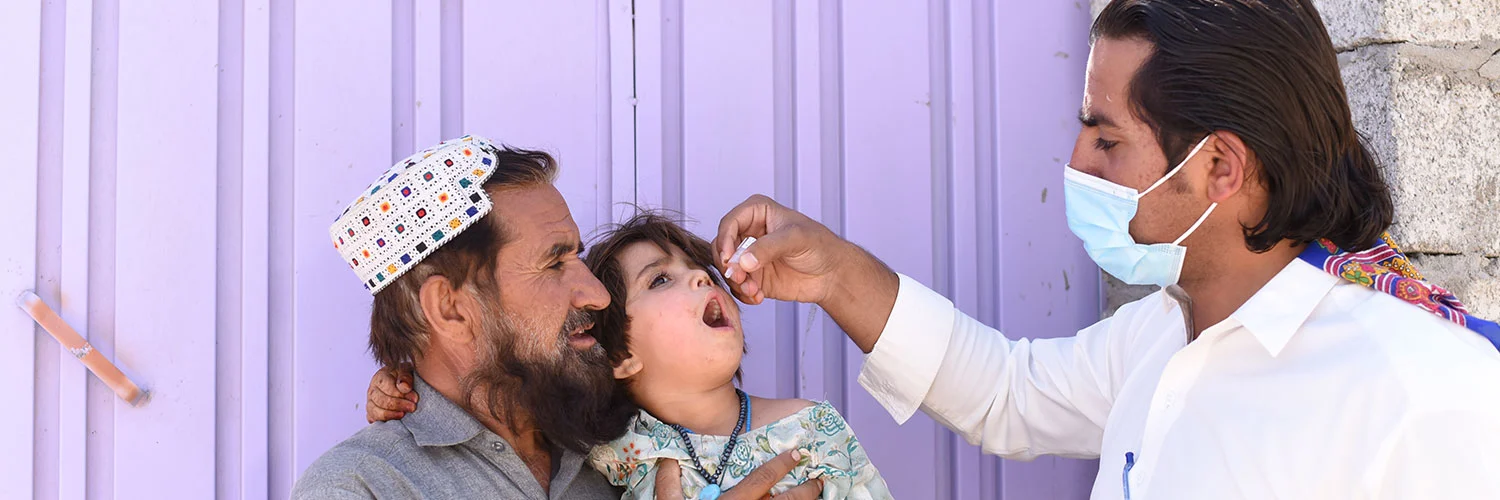Islamabad, February 20, 2024 – Wild poliovirus has been found in an environmental sample from Balochistan’s district Lasbela.
According to the Regional Reference Lab for Polio Eradication at NIH, the virus has been found in wastewater collected from Lasbela on January 23, which belongs to the imported virus cluster, YB3A.
Pakistan has now reported 31 positive environmental samples in January – all of them containing the imported virus.
Federal Minister for Health Dr Nadeem Jan said that the increased detection of the imported virus highlights how it can travel with moving populations and continue to pose a threat to children everywhere.
“This virus does not discriminate and will target any child with reduced immunity, which is why it is critical for all children under five to have multiple doses of oral polio vaccine and complete their routine immunization courses,” said Dr Jan.
Federal Secretary for Health Iftikhar Ali Shallwani said that polio eradication is a top priority for Pakistan to protect all children from this disability-causing disease.
Secretary Shallwani said: “We have made a commitment to the world that we will end polio and we are very close to that goal. With the continued support of partners, donors, families and communities, we will be successful.”
He added that the Pakistan Polio Programme will be initiating the second national vaccination drive of the year from February 26 to vaccinate over 44 million children under five against polio, and he urged parents to open their doors to vaccinators and ensure their children’s protection from polio.
Coordinator of the National Emergency Operations Center for Polio Eradication, Dr Shahzad Baig, said Pakistan’s poliovirus surveillance network is the world’s largest and most sensitive in the world and these detections show that the network is working efficiently and identifying the virus wherever it may be.
Note for the Editor:
Polio is a highly infectious disease caused by poliovirus mainly affecting children under the age of five years. It invades the nervous system and can cause paralysis or even death. While there is no cure for polio, vaccination is the most effective way to protect children from this crippling disease. Each time a child under the age of five is vaccinated, their protection against the virus is increased. Repeated immunisations have protected millions of children from polio, allowing almost all countries in the world to become polio-free, except for the two endemic countries of Pakistan and Afghanistan.
For further information, please contact:
Ms Amina Sarwar, Communications Officer, NEOC
Contact No: +923125190383
Email: This email address is being protected from spambots. You need JavaScript enabled to view it.

